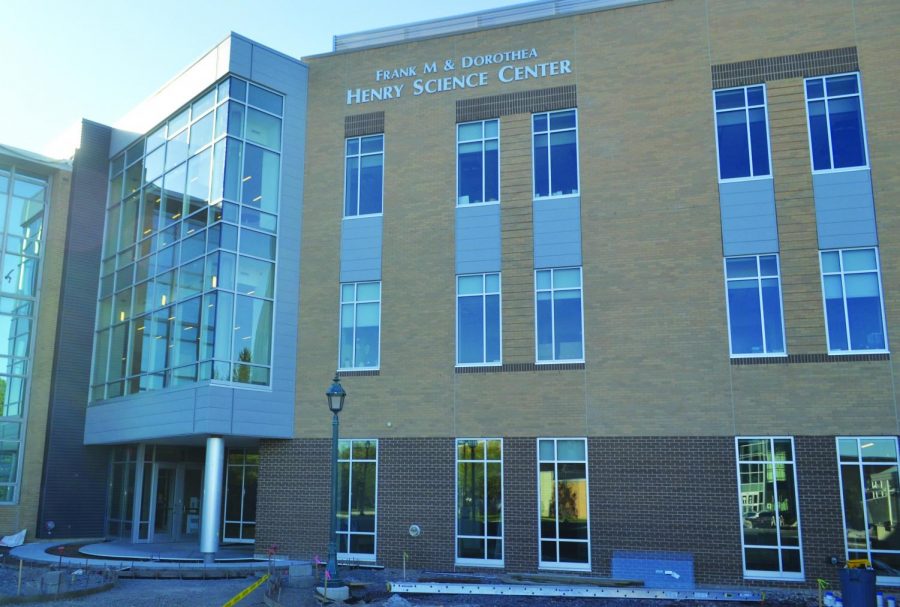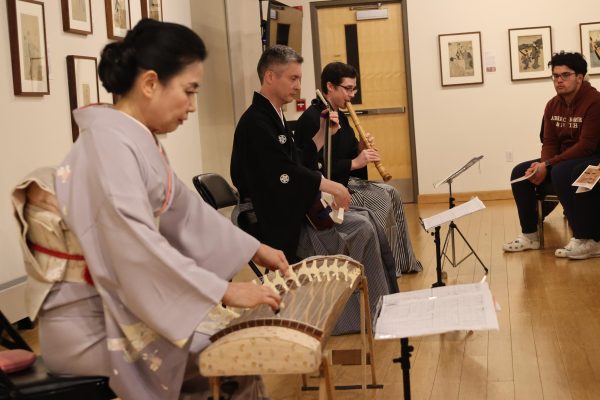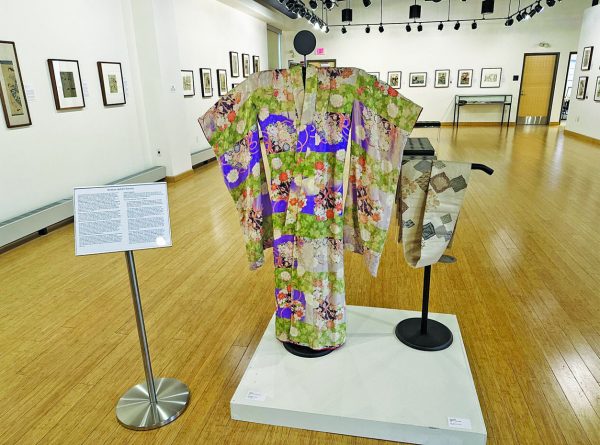Faculty Collaboration Leads to New Environmental Studies Program
May 5, 2021
Faculty from various departments joined forced to create an Environmental Studies program for the 2021-22 academic year.
The interdisciplinary program will bring together faculty from the humanities, philosophy, English, history, religious studies and science departments to give students a better understanding of the environment, its relation to people and what steps they can take to make a difference.
“The Environmental Studies program will challenge students to think beyond disciplinary boundaries and learn to respect and value the contributions of many disciplines to more comprehensively understand problems and find meaningful solutions to them,” said Cosima Wiese, biology professor.
Dr. Heidi Manning, Dean of the College of Arts and Sciences, said creating an environmental studies program is something the faculty have been discussing for quite a while, but it wasn’t until a grant proposal spearheaded by Dr. Melanie Shepherd, philosophy professor, was submitted to and approved by the National Endowment for the Humanities that it became possible. From there, Dr. Shepherd and other faculty members worked on a curriculum proposal, which was approved by the faculty governance process in early 2021.
“We felt that it is was important to have at Misericordia because it fits with the Sisters of Mercy’s Critical Concern about the Earth, and so it seemed very appropriate, it seemed very relevant and there was this demand from the faculty and this desire to create such a program,” Manning said.
The new program will have a required four-course sequence, including ENV 100: Environment and Society, ENV 200: Issues in Sustainability, ENV 300: Environmental Research Design and ENV 400: Senior Capstone. According to Manning, the introductory Environment and Society course will not be offered until the spring of 2022 due to lack of enrollment, but students can take elective courses like Environmental Aesthetics, Global Environmental History and Invasive Species and Climate in the meantime.
Students will also get the chance to apply the theory they learn in the classroom to real life. Wiese said they will have internships and independent research opportunities, as well as the chance to work with community organizations such as the Eastern PA Coalition for Abandoned Mine Reclamation, The Nature Conservancy, the Pennsylvanian Environmental Council and the Pennsylvania Organization for Watersheds and Rivers to allow students to apply their strengths and classroom lessons to real environmental efforts.
“Students could work with these organizations and agencies in a variety of ways, from participating in outreach activities, to marketing and writing, to surveying ecosystems and collecting water samples,” Wiese said. “There are diverse and changing needs, and we would like to work to partner students based on their strengths and interests with the needs of these organizations and agencies.”
Manning believes having both theoretical and real-life application in the program will give students a better understanding of not only how they can take appropriate actions but also why those actions matter.
“To know more about the environment, not just it’s really good to have renewable energy but why and what’s the theory and also how it fits with their lives, how it is important to us. If they are caring and concerned about the environment and they want to do something, this program will help them direct their passion and their energy about what they can do,” Manning said.
Each of the four required courses will be team-taught by one faculty member from the humanities and one from the sciences. Wiese, who said she has never taught with another faculty member before, looks forward to the new experience.
“I am so excited about team teaching,” she said. “I have never had an opportunity to teach in this way but always imagined it to be an incredibly rewarding experience, both for the students and the faculty.”
Wiese hopes that students who enroll in program courses will have their eyes open to different perspectives through interdisciplinary teaching.
“I hope they develop an appreciation and respect for the multitude of perspectives we hope to expose them to and the way in which they can contribute through community engagement. It takes a thoughtful interdisciplinary approach in order to both understand and begin to solve problems of an environmental nature,” Wiese said.
Manning hopes that the program and its courses will attract more students, even if they don’t intend to major or minor in it.
“Even if you aren’t a major or a minor, taking one, two, three classes as electives in that area would be something that could benefit them and really help to broaden their understanding,” Manning said. “I think one of the values of being here at Misericordia is that you have those free electives that you can take and this would really be a nice compliment to anybody’s education.”







